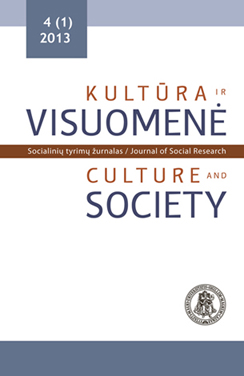Mediciniškai nepaaiškinami negalavimai vėlyvosios modernybės / postmodernybės socialinių teorijų požiūriu
Medically Unexplained Illnesses in the Primary Health Care System of Late Modernity
Author(s): Gediminas Raila, Ingrida Naujokaitė, Vylius Leonavičius, Giedrė BaltrušaitytėSubject(s): Cultural Essay, Political Essay, Societal Essay
Published by: Vytauto Didžiojo Universitetas
Keywords: Primary health care; medically unexplained symptoms; conception of disease and health in late modernity
Summary/Abstract: There is some adequacy between structure, function, state of the primary health care system (PHCS) and the structure and change of the modern society. In sociology the modern society is divided in two stages – first modernity and second or late modernity. PHCS has its specific state in the first and late modernity. In turn the medically unexplained illnesses (MUI) are understood differently in each stage of modernity. There are three social agents in every PHCS: family doctor, patients and managers of PHCS. These three social agents are differently related to MUI because they have different positions, roles and interests in PHCS. In the article, the literature on the PHCS in the late modernity is discussed from the point of view of MUI. The MUI are one of characteristic traits of the contemporary health care system. In their investigation, the postmodern concept of health is useful. The postmodern concept of health or arche-health is defined as a possibility located in the flows of desire and as a play of pure difference (Fox 1993). The postmodern conception of health can be regarded as an extension of the biopsychosocial conception of health. It implies that the postmodern concept of health could treat the MUI as unused possibilities or disallowance of the social differences and become an important factor in changing the health care system.
Journal: Kultūra ir visuomenė: socialinių tyrimų žurnalas
- Issue Year: IV/2013
- Issue No: 1
- Page Range: 11-35
- Page Count: 25
- Language: Lithuanian

